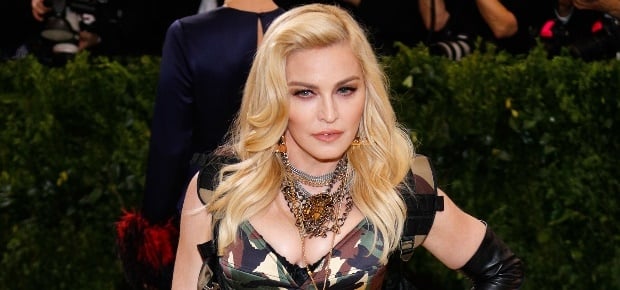Following Madonna’s late December 13 performance at the Barclays Center in Brooklyn, New York, two of her fans, Michael Fellows and Jason Alvarez, have opted to withdraw their lawsuit against the legendary singer and Live Nation. Claiming that if the fans had known the concert would begin at 10:30 p.m., two hours later than planned, they would not have bought tickets, the case was first filed in January. No settlement has been reached between Madonna and the claimants, sources informed TMZ, despite the lawsuit being voluntarily dismissed with prejudice, which means it cannot be reopened on the same grounds. This implies that the men voluntarily opted to withdraw their claim.
Madonna’s legal team had recently filed to have the case dismissed, making a compelling argument that fans are generally aware of her history of starting shows late. The court documents emphasized that if a fan is knowledgeable enough about Madonna’s concert history to know that her performances typically run for two hours and fifteen minutes, they would surely also know that Madonna usually takes the stage well after the ticketed event time. This delay accounts for an opening act, set transitions, and other preparations, meaning that her performances extend late into the night.
In their arguments, Madonna’s attorneys pointed out that the concert was never advertised to start at 8:30 pm. They further stated that no reasonable concertgoer, particularly a Madonna fan, would expect the headline act at a major arena concert to take the stage precisely at the ticketed event time. Instead, a reasonable concertgoer would understand that the venue’s doors would open at or before the ticketed time, with one or more opening acts performing as attendees arrive and settle into their seats, before the headline act eventually takes the stage later in the evening.
The plaintiffs, Fellows and Alvarez, had also argued that leaving the gig venue at 1 am left them with limited public transportation options, increased costs, and reduced sleep before having to get up early for work or family responsibilities the next day. However, Madonna’s attorneys countered these claims by asserting that the plaintiffs were speculating about potential inconveniences that might have affected ticket holders leaving the venue after 1 am. They argued that such potential inconveniences, like trouble getting a ride home or needing to wake up early the next day, do not constitute a cognizable legal injury.
The expectations and experiences of concertgoers are a larger problem that is frequently observed in the entertainment industry, and this example brings it to light. Long-running performers with a solid reputation, such as Madonna, frequently develop signature performance philosophies and techniques that their followers have grown accustomed to. For the most part, Madonna’s lengthy career has provided ample documentation of her propensity to begin her shows late. Her devoted followers are probably aware of her routine tardiness and have become accustomed to it as a part of the musical experience. As a result, the central claim of her legal team is that an experienced Madonna fan would not only expect a delayed start but also view it as an integral aspect of the live experience.
On the other hand, for fans like Fellows and Alvarez, who perhaps expected a more punctual start based on the ticketed time, the late beginning of the concert led to frustrations and practical inconveniences. Their lawsuit reflects a sentiment shared by many concertgoers who feel that the advertised times should be adhered to more strictly to avoid such issues. However, the dismissal of their case underscores a legal recognition that such delays are part of the live entertainment experience, and the associated inconveniences do not necessarily amount to a legal injury that warrants compensation.
The case’s dynamics also highlight how different fan bases for an artist have differing thresholds for acceptance and expectations. There are those who love the unpredictable and long live performances, while there are others who would rather have more structure and timetable fulfillment. For an established and well-known artist like Madonna, whose performance habits are well-known, the legal reasons put up by her team effectively contend that the former group’s expectations should set the benchmark.
If you like the article please follow on THE UBJ.
